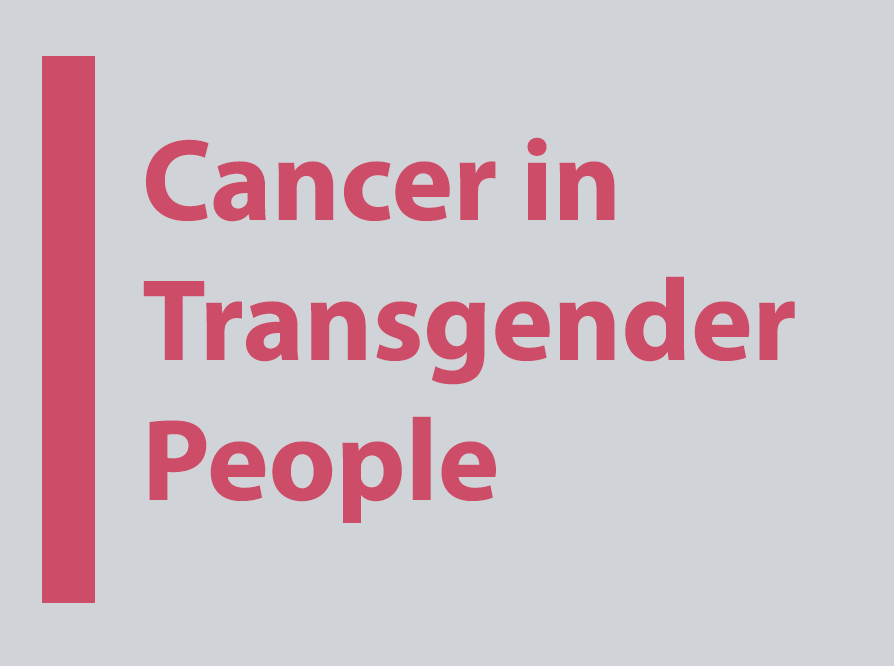Transgender Patients and Cancer Disparities
, by DCEG Staff
Transgender people may be diagnosed at later stages, be less likely to receive treatment, and have worse survival for several cancer types, compared to cisgender patients, according to a study published March 10, 2021, in the Journal of the National Cancer Institute.
The National Transgender Discrimination Survey from 2015 showed that transgender individuals, whose gender identity differs from their sex assigned at birth, experience many barriers to healthcare access, including lack of insurance and discrimination in medical settings. These barriers may delay diagnosis and treatment of cancer and result in decreased survival of transgender patients, however data on cancer in this population are limited since most medical records do not collect gender identity.
Sarah Jackson, Ph.D., postdoctoral fellow in the Infections and Immunoepidemiology Branch, and colleagues, examined the National Cancer Database to investigate the association between gender identity and diagnosis, treatment, and survival of cancer. They found that transgender patients with non-Hodgkin lymphoma, prostate cancer, or bladder cancer were twice as likely to die than cisgender patients. In addition, they found transgender patients might be twice as likely to be diagnosed at later stages for lung cancer and 70-80 percent less likely to receive treatment if they had kidney or pancreatic cancer.
Results of this study highlight the need to improve the collection of gender identity data separate from sex assigned at birth to facilitate research on this underserved community.
Reference
Jackson SS et al. Cancer stage, treatment, and survival among transgender patients in the United States. J Natl Cancer Inst. March 2021. DOI: 10.1093/jnci/djab028. [Epub before print].
